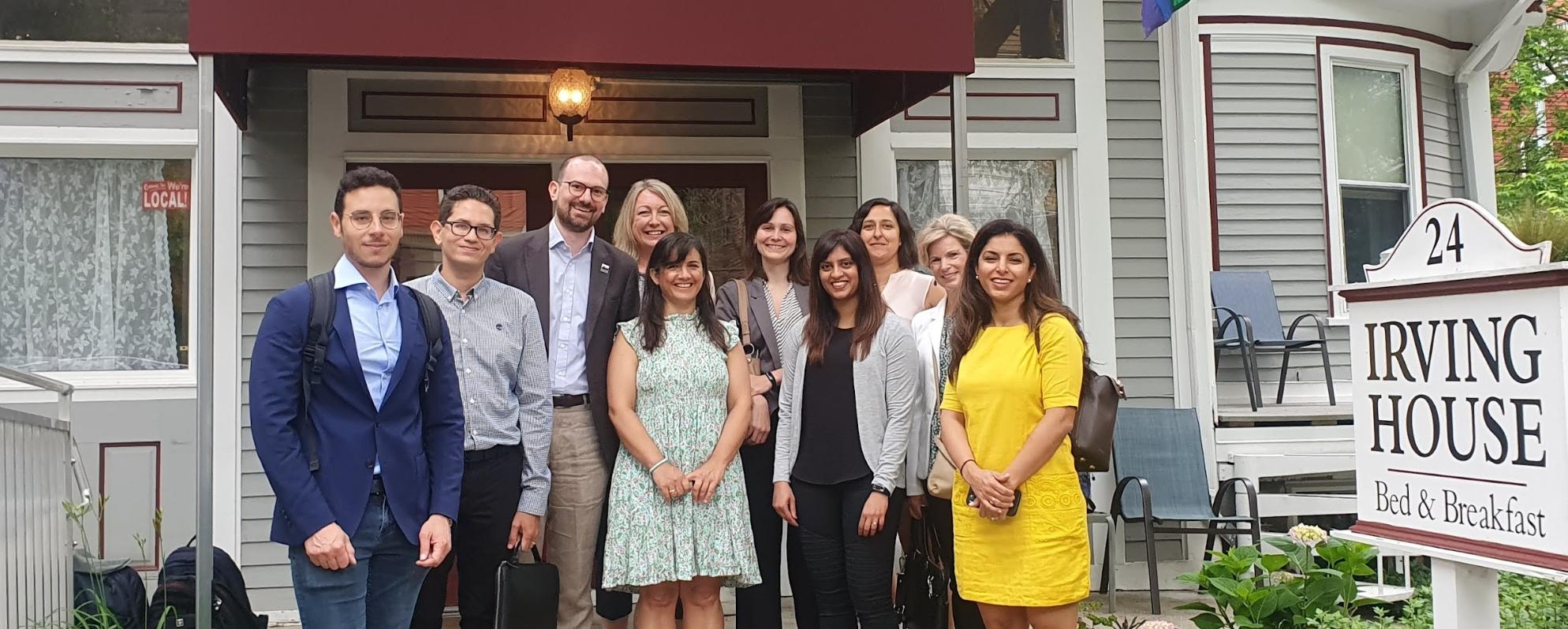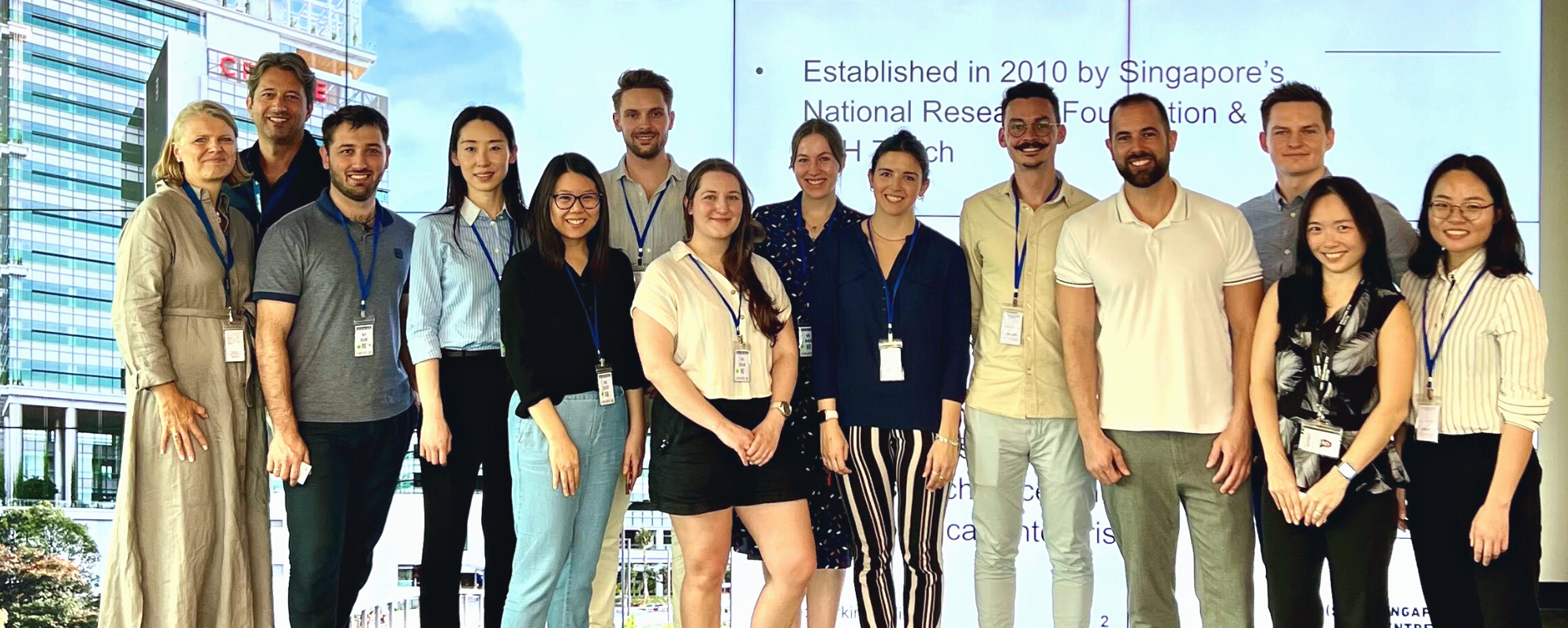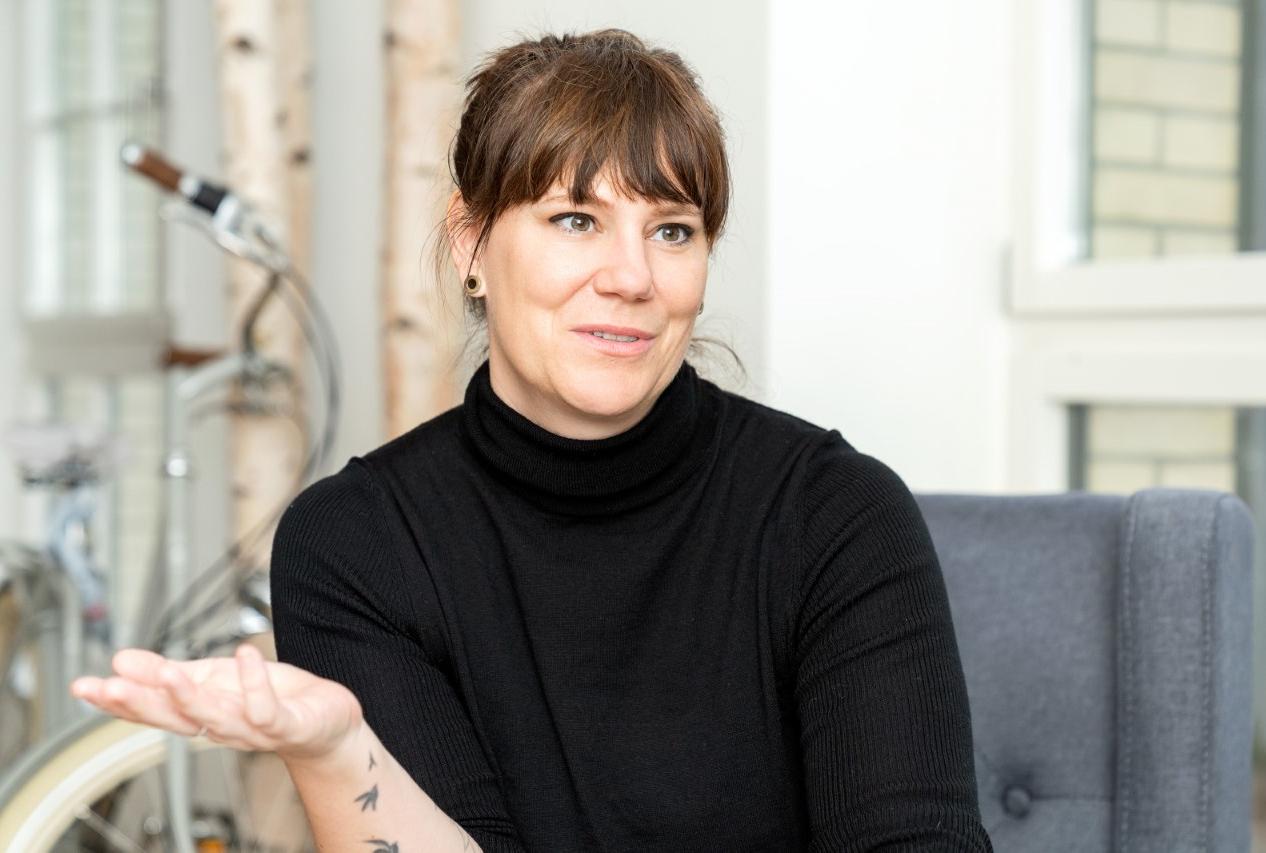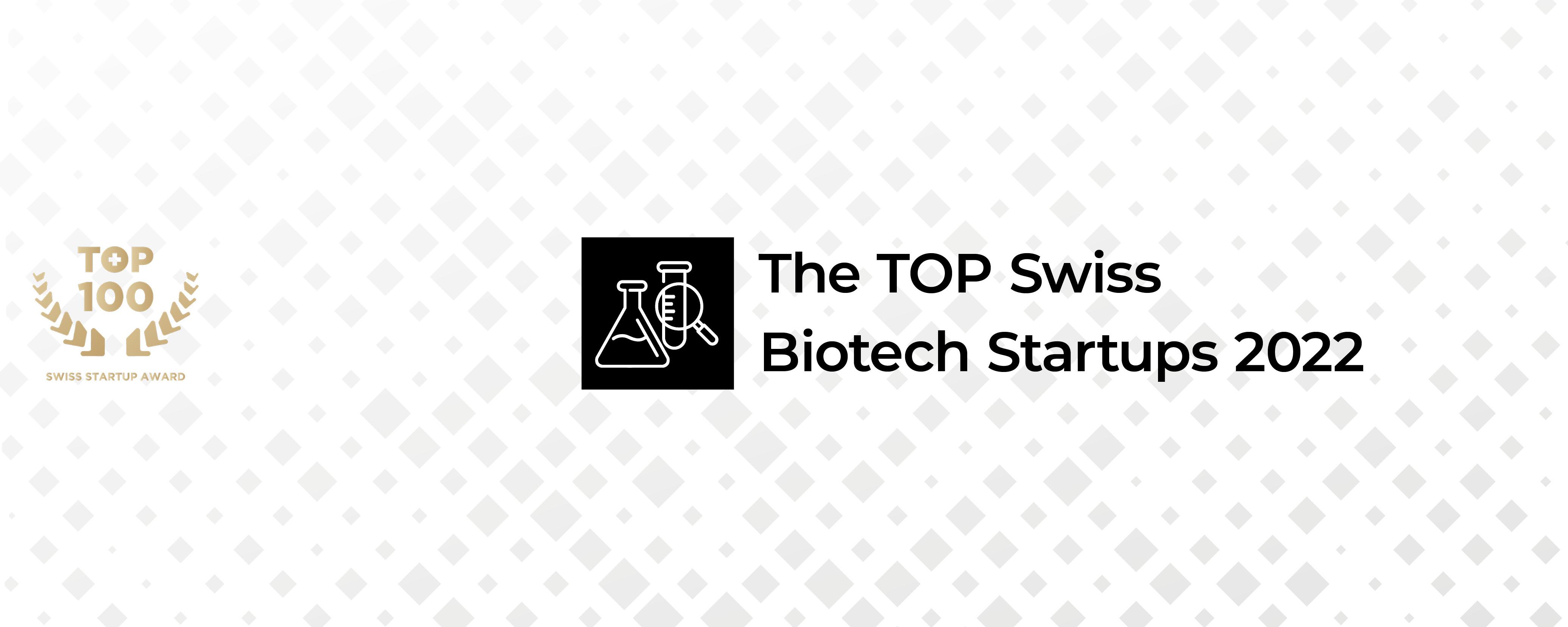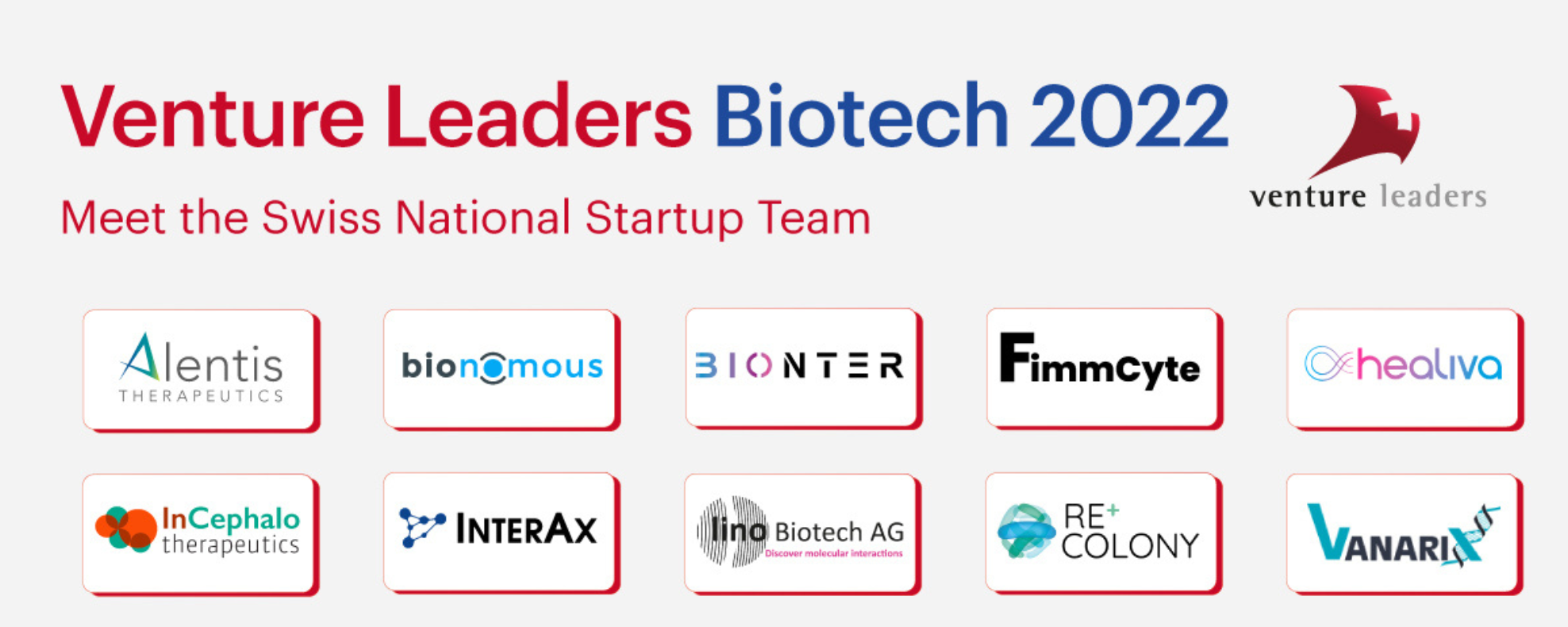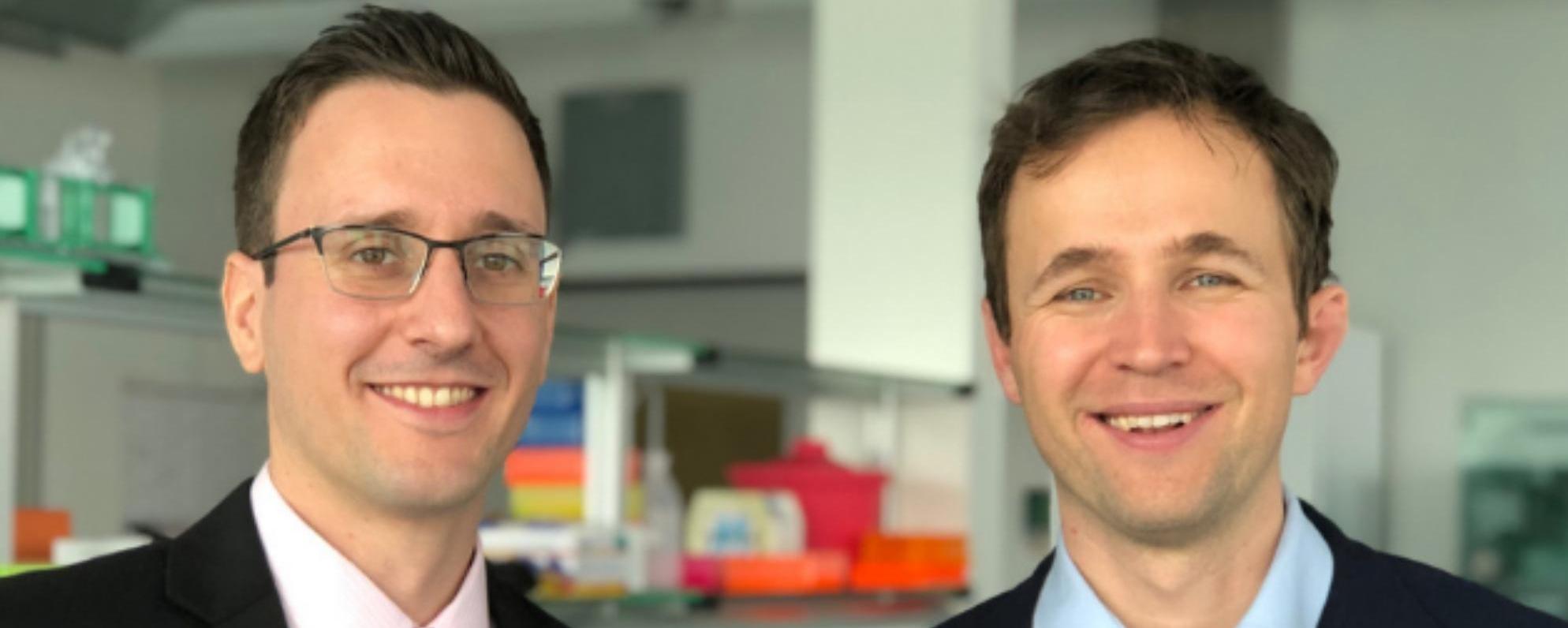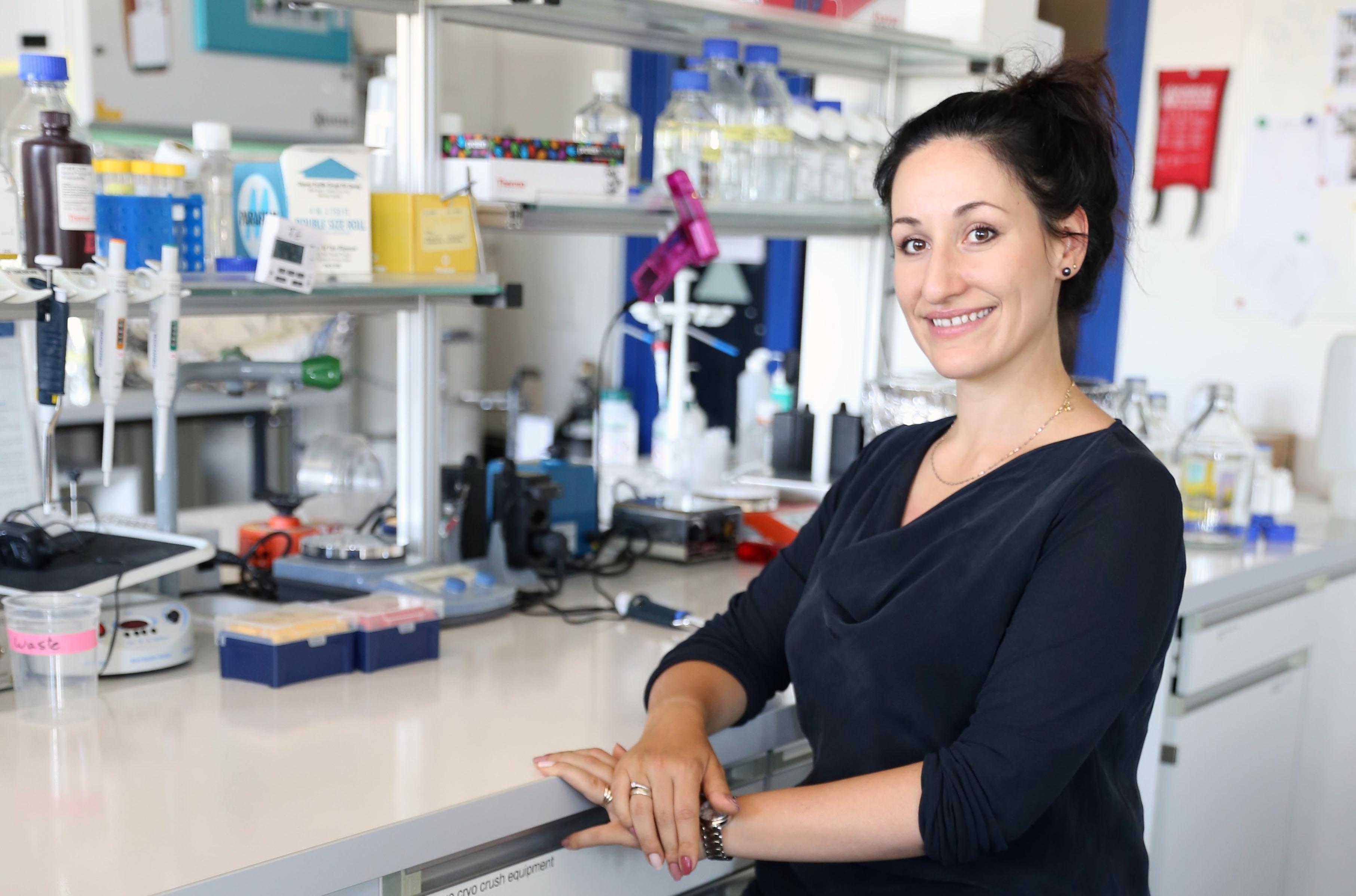Strengthening the pipeline between academic research and entrepreneurship is a win-win proposition for innovators at public and private institutions. It's also the mission at the core of the UZH's BioMed Entrepreneurship programs. Learn more about its history, its offers, and how it helps researchers embark on their entrepreneurial journey.

Academic institutions have a vested interest in facilitating the translation of research into viable businesses: aside from attracting top research talent with excellent infrastructure and support initiatives, these institutions can also generate funding to support new research initiatives or enhance existing ones by participating in the commercialization of spinoffs' inventions.
The life sciences represent a particularly relevant sector of research and business in Switzerland: A 2022 report by the Swiss Biotech Association asserted that exports from the Swiss life sciences sector represented 42% of total Swiss exports in 2021, increasing to a record-breaking CHF 190 billion, and thus proving itself to be a major pillar of the Swiss economy.
The University of Zurich (UZH) has been very invested in establishing a holistic network of initiatives and accelerator programs that fosters scientific innovation and entrepreneurship. It includes the UZH Innovation Hub, the UZH Life Sciences Fund, Wyss Zurich (the joint accelerator program with the ETH), the Therapy Development Accelerator, as well as the BioMed Entrepreneurship programs.
A special focus on biomedical entrepreneurship has led to the creation of the BioEntrepreneurship & Innovation (BEI) program, as well as the expansion of supportive infrastructures and education at the UZH's Institute for Regenerative Medicine (IREM).

Established in 2016, the BEI program helps junior researchers, postdocs, and MDs translate their lab research into marketable ventures. The program's three modules, which are open to researchers at UZH, ETH, and university hospitals, offer a deep dive into the foundations of creating a viable product and launching a venture. From pitching and team building to legal, financial, IP, and regulatory considerations—the BEI's network of experts and entrepreneurs-in-residence delve into the most vital topics of biomedical innovation and business.
Over the past five years, Venturelab has been a contributor to BEI's rich program. Our experts have taught modules on developing the perfect pitch and organized input workshops with startup veterans who shared their first-hand insights, including Daniela Marino of CUTISS and Simon Breitler of EraCal (read more about EraCal's story below).
Venturelab also collaborated with BEI in the organization of the Venture Briefings. This event series supports students, recent graduates, and researchers intending to pursue entrepreneurship and helps them take their first steps toward building a successful startup. On May 10, Recolony's CSO and co-founder, Egle Katkeviciute, will be speaking at the UZH about the startup's journey.
A MODEL FOR SUCCESS
Inspiration for the BEI program came from one of the world's most prestigious research institutions and its enduring entrepreneurial support initiatives: the Martin Trust Center for MIT Entrepreneurship. Since its foundation in the 1990s, the Center has fortified the bridges between education, research, and the commercialization of technologies at the Massachusetts Institute of Technology (MIT). According to a 2015 report, the Center has led to the launch of 30,200 active companies employing around 4.6 million people and generating nearly USD 2 trillion in annual revenue.
While Swiss institutions may be operating on much smaller turf, literally and figuratively, there is ample motivation to provide equally fertile ground for its researchers. One example is the IREM, which has proven itself to be a powerhouse of translational biomedical research. Four out of six of its research groups have channeled their findings into startups: LifeMatrix, Neurimmune, Somagenetix, and novaGo.
The resulting expertise was capitalized on by establishing the BioMed Entrepreneurship team, which is headed by Dr. Andreea Cretu, Program Manager of the BEI program and UZH IncubatorLab, and Dr. Jessica Plucain, Program Manager of the Minor in BioMed Entrepreneurship. The team drives the growth and sophistication of support structures for young researchers.

In 2018, the UZH and IREM established Entrepreneur Fellowships focused on helping young biomedical researchers channel their research into spinoffs and followed up on this commitment by establishing world-class research infrastructure with the IncubatorLab in 2019, which was made possible by the Werner Siemens Foundation. It offers state-of-the-art lab infrastructure, a vibrant research community, and tailored expert coaching to the Entrepreneur Fellows.
Since 2019, the IncubatorLab has supported 14 medtech and biotech projects. They include technologies mitigating the negative effects of preterm birth and stress disorders, diagnostics for infectious and neurodegenerative diseases, as well as novel therapeutic options for oncology, urology, and metabolic disorders.
ENTREPRENEURIAL EDUCATION
The IREM institute recognized that entrepreneurial thinking should be more than an afterthought, i.e., more than something that is tacked on to a completed biomedical education or burgeoning research career.
With the launch of the Minor in BioMed Entrepreneurship for Master's students in health and life sciences in 2021, the IREM is betting on the idea that entrepreneurial skills and mindsets can and should be taught early, as they can shape and guide the direction of scientific research.
As a joint program of the UZH's Faculty of Science and the IREM, the minor provides specialization and gives graduate students the opportunity to develop a distinguished career profile. Modules on business development, corporate management, and the legal requirements of biomedical ventures are rounded off with an internship that offers real-life insights into the startup ecosystem.
Rather than having to begin their studies with an idea, they are given the tools and critical methods to think about the interrelations of research and the practical side of the life sciences, empowering them to view scientific innovation from all sides.
THE NETWORK OF INNOVATION: SUCCESS STORIES
In the past six years, BioMed Entrepreneurship programs have trained over 500 participants that worked on over 120 business ideas and projects. This has resulted in numerous spin-offs and more than 20 ongoing projects. The number of entrepreneurs and experts in residence is only growing and is expected to exceed 100 this year.
Notably, there has been significant overlap in the support provided by the BioMed Entrepreneurship team and Venturelab: 15 startups that profited from the UZH's BioMed Entrepreneurship programs have also participated in Venture Leaders and/or Venture Kick. EraCal also made the TOP 100 Swiss Startup ranking, which is created every year by a jury of investors, VCs, and industry experts.

Three success stories in particular showcase the efficacy of a variegated support network that combines the expertise, perspectives, and resources of different sectors.
EraCal Therapeutics

A UZH and Harvard University spinoff, EraCal Therapeutics was launched to create safer and more effective treatments for metabolic dysfunctions by developing an anti-obesity drug based on an innovative platform for in vivo screening in zebrafish.
Co-founder Dr. Josua Jordi's developed the idea during his postdoctoral research at Harvard. He joined the BEI program in August 2018, after which he incorporated EraCal Therapeutics. He garnered the UZH BioEntrepreneurship fellowship, becoming one of the first fellows to join the IncubatorLab in 2019.
The next two years entailed a lot of pitching, fundraising, and networking with his co-founder Dr. Simon Breitler. In 2019, EraCal also participated in the competitive three-stage Venture Kick program, earning CHF 130,000 of pre-seed funding, and secured CHF 1 million from the UZH Life Science Fund, before closing an oversubscribed seed round valued at CHF 6 million.
In 2020, EraCal was chosen to participate in the Venture Leaders Life Science program, which takes entrepreneurs on international roadshows to connect with investors and industry experts.
The same year, a jury of investors and experts included EraCal in the ranking of the TOP 100 Swiss Startups. The startup also made the ranking in 2021 and 2022, steadily climbing in the ranking and demonstrating its potential as one of the most promising biotech startups in Switzerland.
In the meantime, the startup established a lab space in Schlieren, and announced two major collaborations with corporate giants to develop its anti-obesity drug: Novo Nordisk in 2022, and more recently, Nestlé Health Science.
 Dr. Simon Breitler and Dr. Josua Jordi, co-founders of EraCal Therapeutics
Dr. Simon Breitler and Dr. Josua Jordi, co-founders of EraCal Therapeutics
MUVON Therapeutics

This clinical-stage UZH spinoff is devoted to regenerating skeletal muscle tissue with its cell therapy platform. While its initial focus lay on the treatment of stress urinary incontinence in women, they are now developing a broader treatment for skeletal muscle degradation and damage that could also increase the regenerative potential of weakened muscle tissue.
The co-founders—Dr. Deana Mohr, Dr. Jenny Prange, and Dr. Steve Kappenthuler—brought MUVON to life after twelve years of research at the UZH.
Before MUVON’s inception, Dr. Mohr spread the word about the endeavor at many pitch competitions, training programs, and hackathons before participating in the Innovators Camp, a joint project of the ETH and ZhdK, where she met Dr. Kappenthuler. Together, they joined the BEI program and received a UZH Entrepreneur Fellowship, joining the IncubatorLab in 2020.
They incorporated MUVON Therapeutics later that year. In April 2021, they joined Wyss Zurich, where they are actively advancing their clinical development. The team completed the first phase of their clinal trial at the end of 2021 and continued with the second phase in 2022.
In 2021, MUVON was also chosen to participate in the Venture Leaders Medtech program, which took Deana and nine other entrepreneurs on an investor roadshow in Boston, the US life science hub. It was also in the running for the top spot for the TOP 100 Swiss Startup Public Vote.

Dr. Deana Mohr, co-founder of MUVON Therapeutics
NeuroPAT

Emerging from the IREM research group of Prof. Dr. R.M. Nitsch, NeuroPAT is a project led by Dr. Ruiqing Ni. Her focus lies on non-invasive and cost-efficient tools for the early diagnosis of neurodegenerative diseases like Alzheimer’s and Parkinson’s.
Actively fundraising and applying for research grants, Dr. Ni has secured support from the Synapsis Foundation, Swiss Life, the Zurich Center of Neuroscience (ZNZ), the Vontobel Stiftung, Innosuisse, and the Novartis Foundation, among others.
In 2021, she received the UZH Entrepreneur Fellowship and joined the IncubatorLab before participating in BEI program to polish her pitch and business model.
In 2022, NeuroPAT reached a milestone by filing for a new chemical entity (NCE) patent. The startup was also awarded CHF 10,000 by Venture Kick in October 2022.
Most recently, Dr. Ni was chosen to join the AIT Singapore program organized by Venturelab on behalf of Leading House Asia ETH, which is mandated to foster collaborations and exchanges with innovators in East and South-East Asia by SERI.

NeuroPAT founder Dr. Ruiqing Ni; Dr. Ni with the other participants of the AIT Singapore program and the Swiss Ambassador at a reception hosted by the Swiss Embassy in Singapore
MAKING THE MOST OF THE NETWORK
The innovative work that emerges from the BioMed Entrepreneurship programs highlights the value of collaboration between institutions from the private and public sectors; the return on investment that comes from empowering young researchers with insight, knowledge, and access to resources is boundless.
Don't miss your chance to profit from the offers of the BioMed Entrepreneurship programs and Venturelab. Learn more about upcoming opportunities to advance your career as a biomedical entrepreneur:
- Are you curious about launching a startup? Take part in the upcoming Venture Briefings at UZH & ETH.
- Are you a Master's student set on an entrepreneurial career in biotech/medtech? Begin your studies in the Minor in BioMed Entrepreneurship next fall.
- Are you a life science researcher with a concrete idea and would like to learn how to bring it to the market? Check out the BioEntrepreneurship & Innovation (BEI) program's upcoming modules.
- Are you looking for a funding boost for your startup idea? Take a look at Venture Kick's entrepreneurial support program.
- Is your startup ready to take the next step in its international growth? Then Venture Leaders Medtech and Venture Leaders Biotech may be right for you.
Adularia AG: Precision Cancer Immunotherapy
At Adularia, our technology is rooted in the discovery of a potent immune mechanism, which is based on insights from the symbiotic interplay between gut microbes and the immune system. We have identif... Read more
aiEndoscopic AG: We combine AI with robotics to develop smart endoscopes
The current scarcity and forecasted shortage of skilled healthcare workers lead to more and more problems in experience-based tasks, such as endoscopy. aiE combines artificial intelligence with rob... Read more
Clemedi AG: Making antibiotic resistance testing more comprehensive.
The current diagnosis of anti-microbial resistant infections is largely based on culturing bacteria in the presence of various antibiotics. This is both labor and time-consuming, leading to sub-optima... Read more
condenZero AG: cryo-technology to revolutionize cryo-electron microscopy
condenZero AG, a University of Zurich spin-off, revolutionizes cryo-electron microscopy cooling solutions to unlock the potential of quantum materials. Our innovation enables research at 5K temperatur... Read more
Equsave: Cost efficient and animal friendly PMSG production solution.
Pregnant mare serum gonadotropin (PMSG) is highly used worldwide for the breeding management of livestock. It is isolated from the blood of pregnant horses in so-called "blood farms" in South America.... Read more
EVIIVE AG: Next-generation liquid biopsy solutions.
Our startup specializes in the cutting-edge field of extracellular vesicle (EV) biomarker discovery, utilizing single EV analysis and machine learning to revolutionize precision medicine. We provide a... Read more
FimmCyte AG: First Disease Modifying Treatment for Endometriosis
One in 10 women suffer from Endometriosis: a painful, chronic, infertility causing and recurrent disease. Endometriosis has a physical health burden comparable to cancer, yet only one new treatment wa... Read more
InCephalo AG: Next generation drug delivery for almost any drug modality
InCephalo is a preclinical stage biotech company founded in May 2021. InCephalo's six (6) founders with various backgrounds came together with the vision of making a difference in the lives of those b... Read more
KOVE medical AG: Prevents fetal membrane rupture following fetoscopies.
KOVE develops a device to seal and fix the hole created by the surgical tools used to treat fetuses during pregnancy. By closing this hole, KOVE decreases dramatically the risk of preterm birth, which... Read more
LifeMatrix Technologies AG: LifeMatrix - Biomimetic Solutions for Life
LifeMatrix is active in the field of medical biomimetics and has developed a unique bio-engineering technology to grow human replacement tissues in the laboratory as next generation implants for the t... Read more
MUVON Therapeutics AG: Regain control with MUVON
MUVON enables healthy aging! We reverse age- or damage-related disability through functional skeletal muscle regeneration. MUVON's proprietary, cell-based regenerative platform technology induces succ... Read more
ONtrack Biomedical AG: Non-invasive assays for the screening, diagnosis and monitor
ONtrack Diagnostics is a medtech company focusing on the development of non-invasive assays for the screening, diagnosis and monitoring of oncological diseases. Our first product is a urine assay for ... Read more
OxyPrem AG: Brain oxygen monitoring in high-risk preterm infants.
Preterm children are among the most vulnerable patients in modern clinical care. Their bodies are underdeveloped and they are in an extremely fragile condition. A very important role is played by the ... Read more


